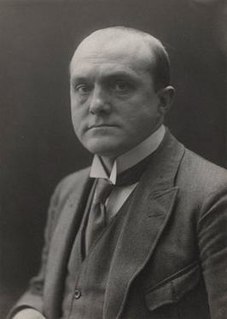A Quote by Meyer Schapiro
Style is, above all, a system of forms with a quality and a meaningful expression through which the personality of the artist andthe broad outlook of a group are visible,... communicating and fixing certain values of religious, social, and moral life through the emotional suggestiveness of forms. It is, besides, a common ground against which innovations and individuality of particular works may be measured.
Quote Topics
Above
Against
Artist
Besides
Broad
Certain
Common
Common Ground
Communicating
Emotional
Expression
Fixing
Forms
Ground
Group
Individuality
Innovations
Life
May
Meaningful
Measured
Moral
Moral Life
Outlook
Particular
Personality
Quality
Religious
Social
Style
System
Through
Values
Visible
Which
Works
Related Quotes
What quality is shared by all objects that provoke our aesthetic emotions? Only one answer seems possible— significant form. In each, lines and colors combined in a particular way; certain forms and relations of forms, stir our aesthetic emotions. These relations and combinations of lines and colors, these aesthetically moving forms, I call ‘Significant Form’; and ‘Significant Form’ is the one quality common to all works of visual art.
It is not merely the brevity by which the haiku isolates a particular group of phenomena from all the rest; nor its suggestiveness, through which it reveals a whole world of experience. It is not only in its remarkable use of the season word, by which it gives us a feeling of a quarter of the year; nor its faint all-pervading humour. Its peculiar quality is its self-effacing, self-annihilative nature, by which it enables us, more than any other form of literature, to grasp the thing-in-itself.
I grew up in a home in which loyalty to family was central to my father's outlook. Adolescent changes to my outlook (which set me against parental values) made me very critical of loyalty, reinforced by certain religious writers I found influential at that time. Harry Blamires, The Christian Mind. But I remained conflicted about loyalty.
Unable to create a meaningful life for itself, the personality takes its own revenge: from the lower depths comes a regressive form of spontaneity: raw animality forms a counterpoise to the meaningless stimuli and the vicarious life to which the ordinary man is conditioned. Getting spiritual nourishment from this chaos of events, sensations, and devious interpretations is the equivalent of trying to pick through a garbage pile for food.
A society which makes provision for participation in its good of all its members on equal terms and which secures flexible readjustment of its institutions through interaction of the different forms of associated life is in so far democratic. Such a society must have a type of education which gives individuals a personal interest in social relationships and control, and the habits of mind which secure social changes without introducing disorder.
The means of communication, the irresistible output of the entertainment and information industry carry with them prescribed attitudes and habits, certain intellectual and emotional reactions which bind the consumers to the producers and, through the latter to the whole social system. The products indoctrinate and manipulate; they promote a false consciousness which is immune against its falsehood...Thus emerges a pattern of one-dimensional thought and behavior.
So we find that in almost every religion these are the three primary things which we have in the worship of God - forms or symbols, names, God-men. All religions have these, but you find that they want to fight with each other...These are the external forms of devotion, through which man has to pass; but if he is sincere, if he really wants to reach the truth, he goes higher than these, to a plane where forms are as nothing.
What matters at this stage is the construction of local forms of community within which civility and the intellectual and moral life can be sustained through the new dark ages which are already upon us. And if the tradition of the virtues was able to survive the horrors of the last dark ages, we are not entirely without ground for hope. This time however the barbarians are not waiting beyond the frontiers; they have already been governing us for quite some time.







































